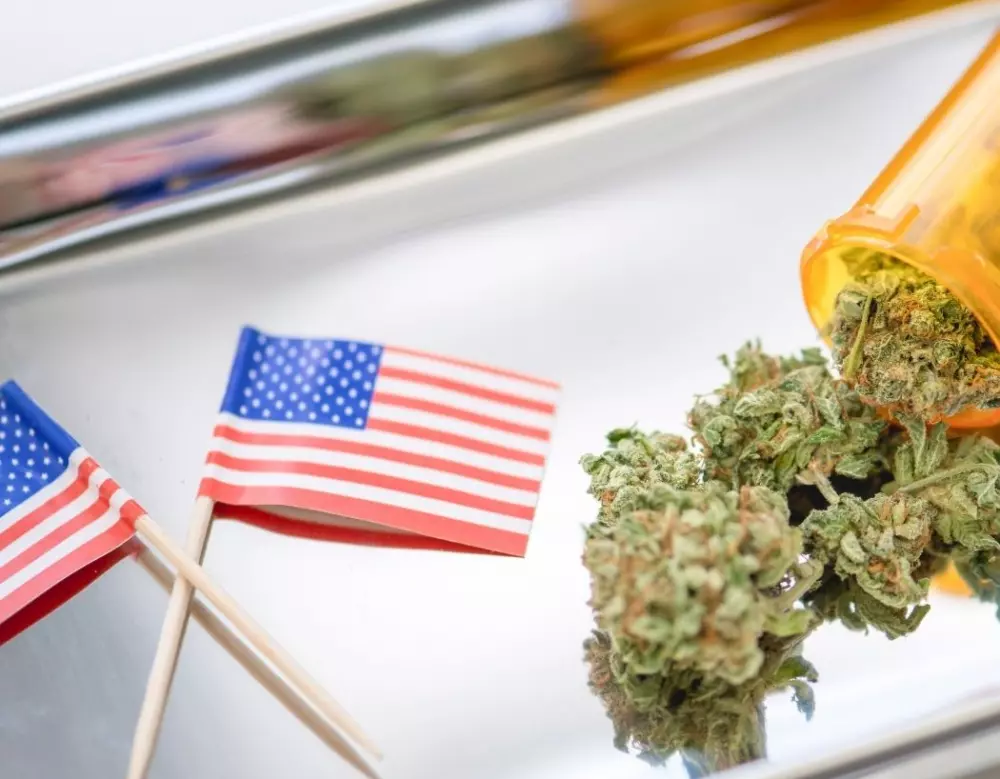In the 2020 election cycle, voters in South Dakota, Montana, Arizona, and New Jersey passed initiatives to legalize cannabis for adult-use consumption within their state, joining 11 others and the District of Columbia. Cannabis legalization across the country, whether it is for medicinal, CBD-only or "recreation," a.k.a. adult use, has unfolded in patchwork fashion due to continued federal prohibition, an approach that makes navigating the legal cannabis landscape confusing for many consumers.
Different Strokes for Different States
To demonstrate the point, let’s take a look at New Jersey, now a legal adult-use state, and its neighbor New York, a short bus or train ride across the Hudson River. Though New Jersey lawmakers are in the process of shaping their legal cannabis marketplace, it’s anticipated that adults 21 and older will be able to purchase and possess up to an ounce of marijuana and up to five grams of cannabis concentrate.
However, the New Jersey Senate committee is only now working on bills to decriminalize cannabis possession in the short term. Across the river in New York, consumers have to get their cannabis from the illicit market, even though cannabis in the Empire State is partially decriminalized, meaning that most marijuana offenses will not threaten a consumer with jail time. Medical cannabis patients are the only residents allowed to make legal purchases.
It doesn’t make much sense, does it, especially considering that thousands upon thousands of people travel between the two states each day? So let’s dig into the difference between decriminalization and legalization.
What Do Decriminalization and Legalization Mean?
Decriminalization simply means that an unregulated activity — such as cannabis consumption and possession — previously classified as criminal conduct is now treated as a civil infraction, sometimes incurring a fine. It also makes the activity a low priority for law enforcement.
Legalization means that the activity can be lawfully regulated, and is no longer considered criminal conduct. When a substance like cannabis is legalized, that gives the power to the state or locality to make laws as they see fit.
However, cannabis legalization does not necessarily mandate a retail marketplace. For example, in 2018, Vermont residents legalized personal possession of cannabis and cultivation for up to two plants, but retail sales remained illegal. It took until October 2020 for the governor to allow a bill that legalized marijuana sales.
As many Urban Aroma readers know, DC is another locality bucking the trend of the cannabis marketplace, utilizing a “grow and give” model. D.C. voters passed Initiative 71 in 2014, which allows adults 21 and over to possess and consume up to two ounces of cannabis in their homes. Residents may grow their own cannabis, but only medical patients can make purchases. Consumers may also “transfer without payment,” hence the grow-and-give method of sharing cannabis.
What Do Voters Want?
It is clear that voters are demanding less punitive drug policies in general. The November election cycle saw voters in Oregon decriminalize all illicit drugs (in small quantities) and legalize psilocybin, a.k.a. magic mushrooms. DC voters also approved the
decriminalization of psilocybin. They
join ranks with cities that have already decriminalized psilocybin, including Santa Cruz, California, Ann Arbor, Michigan, and Denver, Colorado.
While the distinction between decriminalization and legalization is important, many cannabis advocates argue that decriminalization in and of itself is not meaningful enough because it ultimately keeps cannabis sales revenue in the hands of criminal cartels and their networks of distributors.
Decriminalization measures also fail to address the injustices of the War on Drugs, which has disproportionately impacted communities of color. According to drug policy reform organization Drug Policy Alliance, people of color experience discrimination at every stage of the criminal justice system, and are more likely to be stopped, searched, arrested, convicted and harshly sentenced than their white counterparts, who use cannabis at approximately the same rates.
Ending Cannabis Arrests
For lawmakers uncomfortable with moving ahead with drug legalization, decriminalization presents itself as a comfortable (for them) middle way, one that allows legal discernment between everyday or occasional consumers and those with criminal intent.
However, despite widespread legalization and a trend toward legalization, law enforcement still arrests a substantial number of people for cannabis. According to Pew Research, four-in ten arrests in 2018 were related to marijuana, primarily possession.
How the incoming Biden administration will craft drug policy is yet to be seen, but there is cautious optimism that at the very least existing punitive policies will ease, and there will be a move toward federal decriminalization and expungement for minor offenses. Stay tuned.
